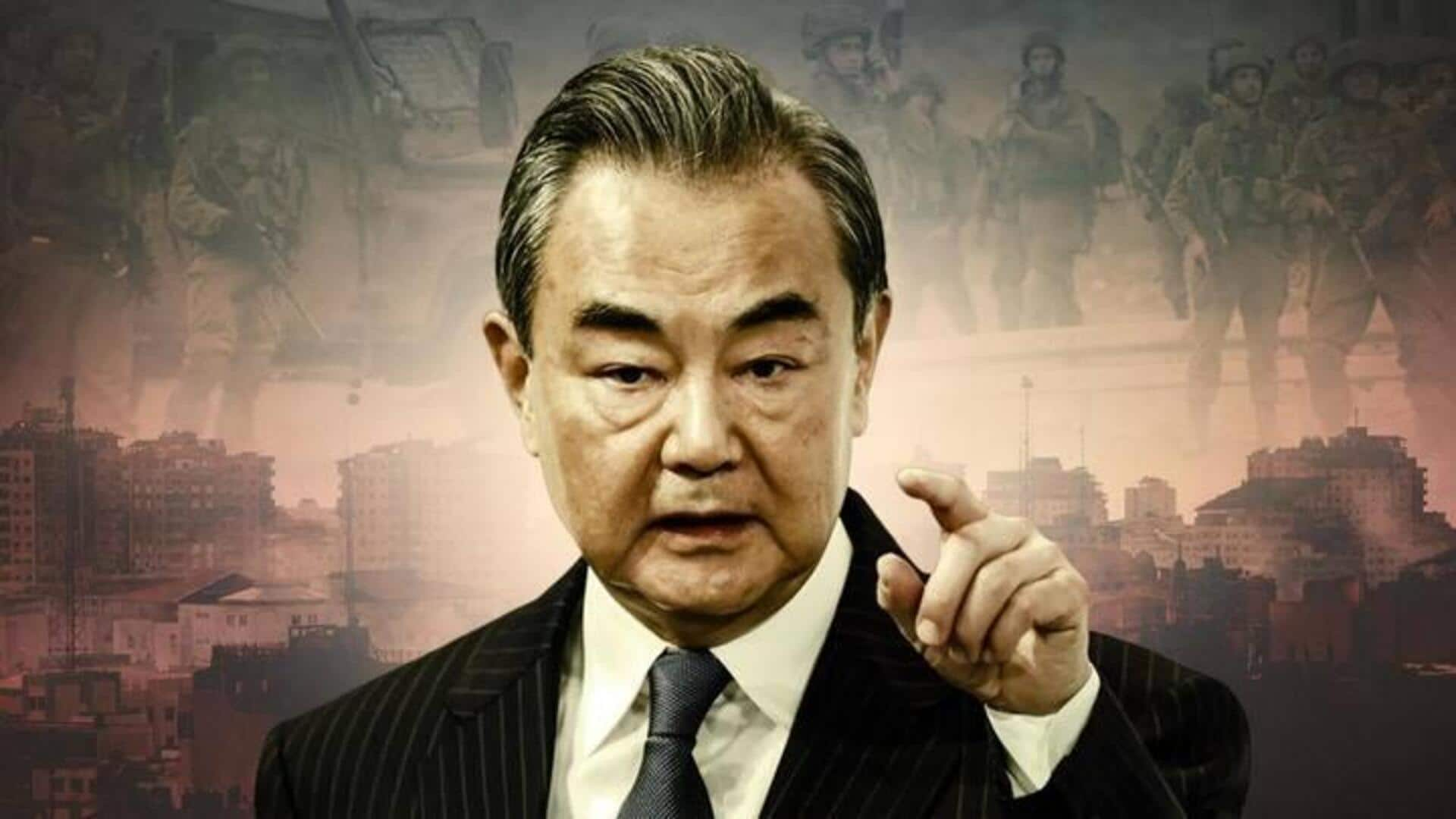
China urges Israel to stop military operations in Rafah
What's the story
China on Tuesday called on Israel to halt its military operations in the southern Gaza city of Rafah "as soon as possible," warning of a "serious humanitarian disaster" there if fighting did not stop. In a statement, the Chinese foreign ministry condemned actions that harmed civilians and violated international law. Israel is facing growing international pressure to agree to a ceasefire with Hamas as it prepares for an incursion into Rafah, where more than a million displaced Palestinians are trapped.
Context
Why does this story matter?
The conflict in the Hamas-controlled Gaza Strip started last year on October 7, after the Palestinian terrorist group killed nearly 1,200 Israelis and took roughly 240 hostages during its cross-border attacks on Israel. In retaliation, the Jewish nation launched a multi-pronged military operation in the strip and has killed more than 28,000 Palestinians so far. Amid the ongoing conflict, several countries, including the United States (US), have asked Israel to limit civilian casualties in its military operation against Hamas.
Global push
International efforts for ceasefire
As the Israel-Hamas conflict continues, Central Intelligence Agency (CIA) Director William Burns is set to visit Cairo, Egypt, for discussions on a Qatar-mediated ceasefire. It would ensure a pause in fighting in exchange for Hamas releasing hostages. To recall, Jordan's King Abdullah also advocated for a full ceasefire during his recent White House visit. "We cannot afford an Israeli attack on Rafah. It is certain to produce another humanitarian catastrophe. We need a lasting ceasefire now," he said.
On Monday
Israel's military operations, reactions
After turning down Hamas's truce terms last week, Israel carried out a predawn raid in Rafah on Monday, freeing two hostages and killing around 100 people there. Israeli Prime Minister Benjamin Netanyahu praised the operation as "perfect," while the Palestinian foreign ministry labeled it a "massacre." Separately, US President Joe Biden reiterated his opposition to a major assault on Rafah. However, Netanyahu insisted that a "complete victory" could only be achieved by eliminating the last Hamas battalions in Rafah.
War-torn
Operations in Rafah to impact humanitarian aid
Rafah has become a haven for over half of Gaza's population facing diseases, food shortages, and living in makeshift encampments near the Egyptian border. United Nations (UN) spokesperson Stephane Dujarric stated, "As it is, there is no place that is currently safe in Gaza." The UN's human rights chief, Volker Turk, warned that a full Israeli incursion into Rafah could lead to a steep rise in civilian deaths and injuries. He added that it would also impact humanitarian aid delivery.